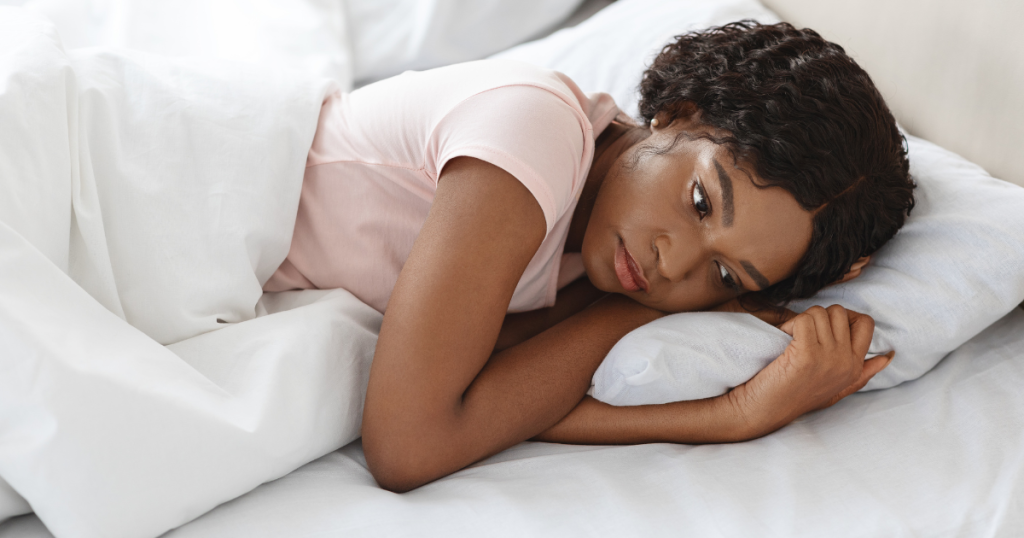By Dr. Elayne Daniels | June 25, 2021 | 0
Ever wonder about a cure for depression and anxiety? You’re in good company if so.
Depression and anxiety are often misunderstood. And both are more common than you might think.
In fact, depression affects more than 16.1 million American adults over 18 every year.
And, while struggles with depression can develop at any age, 32.5 years is the median age of onset. According to the National Center for Health Statistics, depression is most common in people ages 18 to 25.
Worldwide, 322 million people live with depression. That is according to the World Health Organization. Yikes! That’s a lot of people.
Speaking of a lot of people….
Anxiety disorders are the most common mental health problem in the U.S., affecting 40 million adults over 18.
The ways to cure depression and anxiety overlap.
Depression
What is depression?

Everyone feels sad at times.
It’s part of being human. For people with depression, though, sadness is more intense, far-reaching, and persistent. It’s so much more than “just sadness.”
Depression negatively affects how you feel, think, and act. When depressed, you may question if you’ll ever feel better. Sometimes there’s a triggering event, but not always.
Clinicians categorize depression by type. The most commonly diagnosed clinical form is Major Depressive Disorder.
Other symptoms of depression may include:
- Lack of interest in things you usually enjoy
- Feeling down or sad
- Trouble concentrating
- Low motivation
- Sleep problems (difficulty falling or staying asleep, sleeping too much and still feeling tired)
- Appetite/eating changes
- Thoughts of death – your own, someone else’s, or in general
- Feeling badly about yourself (e.g. you are a failure or disappointment)
- Walking/talking more slowly or rapidly than usual,
How about some good news? Depression is treatable.
“Treatable” means symptoms can be alleviated. Although there is no clinical cure for Depression, it can go into remission.
Definitions of remission vary, but generally have to do with no longer having symptoms. In other words, the disorder is “at rest.”
Please hear this:
Speaking clinically about depression is one thing. But how you live your life and feel is another.
Treatment options for depression include (among others):
- Lifestyle changes
- Psychotherapy
- Support groups
- Medication
Some treatment approaches require working with a professional. There are also many things you can do on your own.
A catch-22 with depression is that the very things you know would be helpful are the same things you have a hard time motivating yourself to do.
Lifestyle Changes
Start small. What can you do?
The more your lifestyle is geared toward a healthy mind and body, the better you’ll be able to cope with symptoms of depression (and with life in general).
Examples of lifestyle changes:
- Exercise
- Nutrition
- Sleep
- Social connection
- Caring for a pet
- Mindfulness
- Meditation or yoga practice
- Time in nature
- Meaning and purpose in the everyday
- Eliminating use of alcohol, tobacco, and other ‘vices’
- Gratitude
One of the best lifestyle changes you can make is to ditch dieting. In my experience, quality of life soars when Diet Culture rules no longer hold you hostage. Try Intuitive Eating instead.
Psychotherapy
There are many different forms of therapy and lots of experts to choose from. Providers vary in their credentials and theoretical approach.
Cognitive behavioral therapy (CBT) is a common and effective psychotherapy for treating depression, anxiety, eating disorders, and other issues.
CBT focuses on changing a person’s thoughts and beliefs. It also highlights the impact of thoughts and beliefs on mood and actions. (More information on this is below.)
Support Groups
Participating in a support group can be an excellent way to help you feel better.
People with depression meet as part of a psychotherapy group to talk about their experiences. Usually there is a mental health professional who is the group leader. Group members provide each other encouragement, understanding, and support.
Being in a support group is different from talking with supportive friends and family. People who have had similar experiences often have a deeper understanding of what you’re going through. They know firsthand what depression feels like.
The main benefits of joining a depression support group include:
- Ongoing social contact with people in a similar position
- Opportunities to share struggles and solutions
- Advice from mental health professionals/co-facilitators
Medication
Depression medications are grouped into categories based on how they work.
The most common antidepressant categories include select serotonin reuptake inhibitors (SSRIs), selective norepinephrine reuptake inhibitors (SNRIs), and atypical antidepressants.
- SSRIs work by increasing levels of serotonin in the brain. Examples: Zoloft, Paxil, Prozac
- SNRIs work by increasing levels of serotonin and norepinephrine in the brain. Examples: Cymbalta, Effexor XR, Pristiq
- Atypical antidepressants work by increasing dopamine and norepinephrine in the brain. Examples: Trazodone, Wellbutrin XL, Remeron
Every person’s body is unique and metabolizes medications differently. Trial-and-error is often needed to find a medication that works. A good place to start is with a medication that a first-degree relative has had a good response to.
People often ask about side effects with antidepressants. As with every medication, there may be some. The most common side effects are constipation, diarrhea, nausea, headache, dizziness, sexual dysfunction, difficulty sleeping, and drowsiness.
Another common question is how long a medication will take to work. If it works, you’ll know within a month or so. Even when you find the “right” medication, you might not notice an improvement in how you feel right away.
Anxiety
What is Anxiety?

Most people know what anxiety feels like because at some point they’ve felt anxious.
Anxiety is a natural human emotion that includes worry, tension, and changes within your body such as increased pulse. As a species, we’re wired to respond to fear (by our fight, flight, or freeze response). That’s how we’ve survived as a species.
So anxiety can be a good thing. It helps you recognize potential threats and keeps you alert.
For some people, anxious feelings quickly come and go. For other people, not so much. They may have an Anxiety Disorder, for which more formal treatment is available.
Anxiety is normal, not a flaw. However, people may get into coping patterns that make anxiety feel like something is very wrong, especially when anxiety is persistent and overwhelming. When anxiety interferes with daily activities, it’s considered a disorder.
Anxiety can take different forms. Symptoms of anxiety, for example, exist as part of several mental health conditions, such as mood disorders and eating disorders.
Anxiety Disorders are highly treatable, yet only 36.9% of those suffering receive treatment. How sad is that?
The seven most common “official” anxiety disorders include:
- Generalized Anxiety Disorder (GAD)
- Panic Disorder.
- Social Anxiety Disorder.
- Post-Traumatic Stress Disorder (PTSD)
- Obsessive-Compulsive Disorder (OCD)
- Separation Anxiety Disorder
- Phobias
Are there treatments for anxiety?
Yes! Treatment categories for anxiety are the same as those for depression:
- Lifestyle changes
- Psychotherapy
- Support groups
- Medications
The specific type of anxiety determines the best course of treatment.
Lifestyle Changes
There are things you can do to help manage anxiety. They are useful to consider, and many are common sense. Things like getting enough sleep, exercising regularly, having a mindfulness practice, and eating foods that benefit the brain are healthful habits regardless of anxiety. But they become game-changers for the person suffering from anxiety.
Psychotherapy is another effective way to manage different types of anxiety.
One of the best approaches to help with anxiety is Cognitive behavior therapy. The same CBT that is recommended for treating depression is helpful to treat anxiety.
Thoughts affected by depression or anxiety are often negative. You may not even realize that the way you think is problematic. Even though the negative thoughts bring you down and interfere with your daily life, you may think of them as facts.
We commonly accept our thoughts as facts. But they aren’t necessarily facts. They’re cognitive distortions, aka thinking mistakes that you can correct.
Examples of cognitive distortions include:
- All-or-nothing thinking: “I have to be perfect, or I suck.” Or “I ate a ______ so now I can’t eat the rest of the day.”
- Filtering: “No one ever compliments me” (disregarding the times people have complimented you).
- Catastrophizing: “My friends did not invite me to join them. They hate me.”
These are just a few of the several categories of cognitive distortions. When you know how to identify distortions, you can more easily recognize them in your self-talk. In other words, name it to tame it!
And, upon recognizing the distortions, you can reframe them so the thoughts are more neutral and realistic.
Reframing is not about being a Pollyanna. Nor is it toxic positivity. It’s about removing exaggerations and subconscious conclusions that aren’t based in reason or fact so you can “soften the edge” that you experience as anxiety.
Medication
Depending on the type of anxiety, medication may be prescribed.
While meds don’t cure anxiety, they can help with symptoms so you can function well and feel better in your day-to-day life.
Many types of medications are available. Because every person is different, your doctor may have to prescribe several different medications before finding the one that’s right for you.
Common medications for treating anxiety include:
SSRIs are used to help improve symptoms of depressed mood and anxiety. Examples include:
- Fluoxetine (Prozac) is used to treat OCD, Bulimia, Panic, and Depression
- Escitalopram (Lexapro) is used to treat Generalized Anxiety Disorder
- Sertraline (Zoloft) is used to treat OCD, PTSD, Social anxiety, Panic Disorder, and Depression
- Fluvoxamine (Luvox) is used to treat OCD, PTSD, Depression
- Paroxetine (Paxil) is used to treat OCD, Social Anxiety Disorder, and Depression
ANXIOLYTICS are used to relieve anxiety and promote sleep. An example is:
- Buspirone (Buspar) is used to treat anxiety. It works as well as benzodiazepines, but with fewer side effects. Also, it’s not habit-forming like benzodiazepines are and can be used in addition to an SSRI.
Benzodiazepines are used to help calm your mind. Doctors prescribe them to treat different types of Anxiety Disorders, including Panic Disorder, Generalized Anxiety Disorder, and Social Anxiety Disorder.
A downside of benzos is that they can be habit- forming. They also tend to increase drowsiness and worsen balance and memory.
Examples include:
- Alprazolam (Xanax)
- Chlordiazepoxide(Librium)
- Clonazepam (Klonopin)
- Diazepam (Valium)/
- Lorazepam (Ativan)/
Other resources for learning more about depression and anxiety:
Mental Health America (MHA) is a community-based nonprofit that helps people living with mental illness. Its mission is to promote overall mental health.
The Depression and Bipolar Support Alliance (DBSA) is a national peer-oriented mental health organization. Their mission is to provide support and education.
Anxiety and Depression Association of America is geared toward improving quality of life for people with anxiety, depression, OCD, and PTSD through education.
Chances are you or someone you love has been or will be affected by depression and anxiety. So learning more is important. Awareness and knowledge are empowering and provide a solid base for getting help, whether for you a friend, a loved one, or a colleague.
Depression and anxiety can (and do) happen to anyone. Sometimes it’s obvious when someone is struggling with depression or anxiety. However, many people hide it well. They may deny anything is wrong, even though their struggles are beyond what other people deal with. Stigma can make it harder for people to be honest about feeling depressed or anxious.
While there is still no permanent clinical cure, the way you deal with depression and anxiety is its own type of “cure.” And, even as you read this, clinicians are working to find a permanent clinical cure. It’s just a matter of time.
In the meantime, you have resources within you to help you through.


